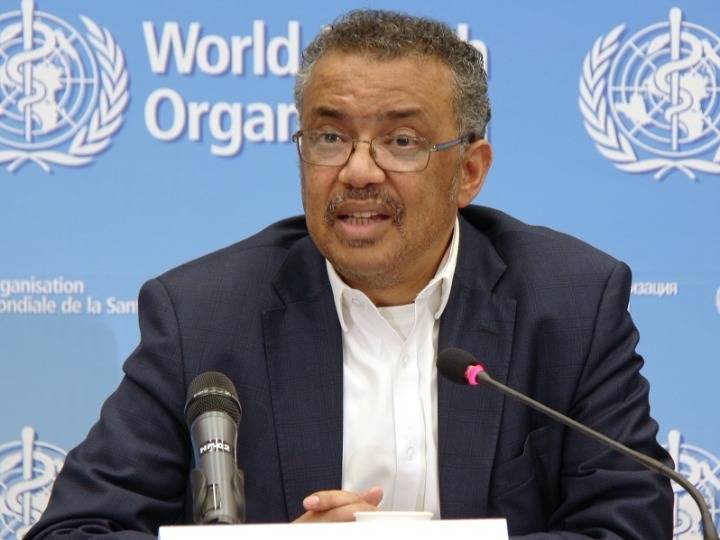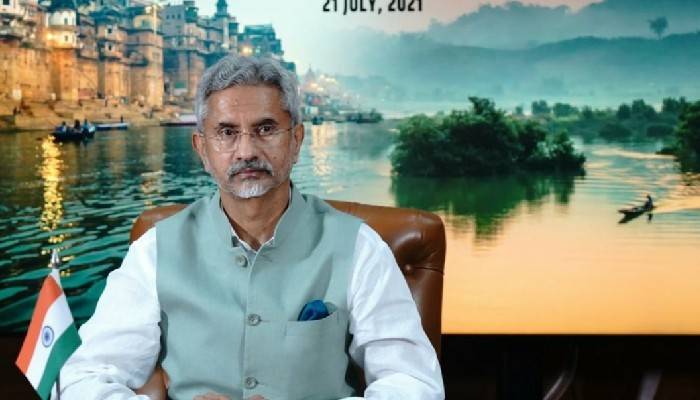Dr Hans Kluge, Regional Director, WHO Europe, said: “People in the European region are quite literally breaking down under the strain of COVID-19 and its consequences….reports Asian Lite News.
Senior health officials from the WHO’s European Region on Wednesday conveyed their commitment to addressing the mental health crisis that has worsened due to the COVID-19 pandemic across the region.
A WHO release said the mental health impacts of the pandemic will be long-term and far-reaching. “From anxieties around virus transmission, the psychological impact of lockdowns and self-isolation, to the effects of unemployment, financial worries and social exclusion, to in-person access to care, everyone is affected in one way or another.”
“It is not just the infection, or worry about getting infected, that has affected people’s mental health. The stress brought about by socio-economic inequalities and the impacts of quarantine, lockdown and school/work closure have also had a huge impact,” it added.

WHO further said people with pre-existing mental health conditions are disproportionately likely to contract COVID-19 infection, but the pandemic and its effects have also exacerbated their mental health conditions.
Dr Hans Kluge, Regional Director, WHO Europe, said: “People in the European region are quite literally breaking down under the strain of COVID-19 and its consequences. The pandemic has shaken the world. More than 4 million lives were lost globally, livelihoods ruined, families and communities forced apart, businesses bankrupted, and people deprived of opportunities. These consequences of the pandemic have exacted an enormous toll on the mental health and well-being of people in the European region.”
“Yet the pandemic, which has been devastating in so many ways, provides an opportunity for countries to re-think and re-form their mental health services. It is an opportunity no country can afford to waste if we are to build back better and stronger.”
Stressing that mental health and wellbeing should be seen as fundamental human rights, WTO said improving public mental health services is a win-win for everyone. “It won’t just mitigate the mental health impacts of COVID-19, but support the sustainable improvement of overall mental health, result in economic savings which thereby also promotes economic recovery, and support the achievement of wide-ranging policy objectives including achieving universal health coverage by 2030.”

Dr Vasileios Kikilias, Minister of Health, Hellenic Republic, said: “There is no question that the pandemic has impacted the mental health of people of all ages, particularly teenagers, young people and children.” “Scientists, specialists, WHO, together with the Member States, need to devise and implement policies that will assist our fellow human beings who are in need.”
Margaritis Schinas, Vice President of the European Commission for Promoting our European Way of Life, said: “The COVID-19 pandemic has exacerbated the already existing huge mental health challenge that is increasingly getting more complex and diversified. There is no excuse for delays and complacency in our answers to the immediate and longer-term consequences of this health, social and economic crisis. Our response will be holistic and above all anthropocentric. Together with WHO we are joining forces to build a solid Mental Health Coalition in order to address and mitigate the mental health impact of the pandemic.”
38-year-old Katerina, who is a recipient of mental health care in Greece, has been receiving treatment for a psychiatric disorder since 2002 and had been coping well with a mixture of therapy and support groups. But when the pandemic hit, her life was turned upside down.
Katerina said: “During the pandemic, my daily life changed abruptly. I had to comply with the general instructions observing all personal protection measures. Unfortunately, the pressure of social isolation led to increased anxiety, reviving my past experiences. On top of this, the interruption of my in-person support groups led me to agree with my psychiatrist to increase my treatment. At the same time, all visits to my father were cancelled for his own safety, even though he has been my carer for many years. I call on leaders to listen to the voices of those with mental health problems, so our views can inform decision-making at all levels.”
At the request of the WHO Regional Director for Europe, a technical advisory group (TAG) was established in February 2021 to provide advice and guidance to Member States of the WHO European Region and other interested parties on the key mental health impacts of the COVID-19 pandemic, and to suggest critical actions to be taken by national authorities in response.

The recommendations for the member states include improving access to culturally adapted mental health services through digital and other means; helping people improve resilience; providing occupational and/or financial support to those unable to work, and promoting psychological support initiatives in the workplace.
Other suggestions include addressing the social determinants of mental health, like poverty and unemployment; monitoring changes in mental health at the community level and provide more community support for adolescents and young adults. (ANI)









